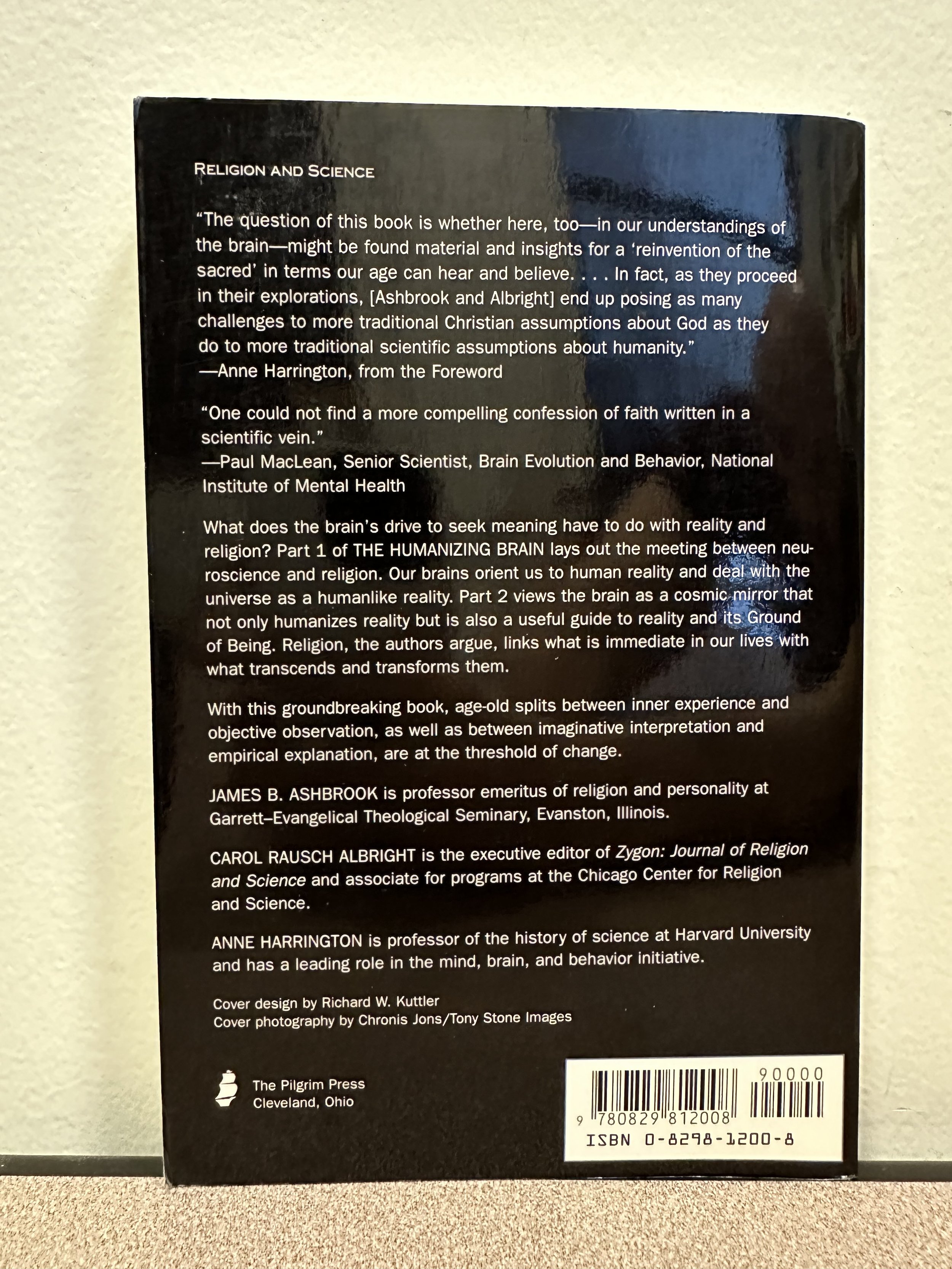Ashbrook & Albright (1997). The humanizing brain: Where religion and neuroscience meet


Ashbrook & Albright (1997). The humanizing brain: Where religion and neuroscience meet
"We are biased in our culture today to suppose that any appeal to the authority of fields like brain science and evolutionary theory is an inevitably reductionistic move, one that is destined to blow apart any lingering hopes we might have that words like "divinity" and "the sacred" can still have meaning for us. ...This bias is understandable. As a rule, when brain science has taken it upon itself to pronounce on the continuing credibility of cherished religious ideals, the news has indeed been gloomy. . . . . [To address this issue], Ashbrook and Albright draw . . . not only [upon] modern, evolutionarily grounded understandings of the brain, but insights as well from new fields like complexity theory.
"Looking at ourselves in the mirrors held up by brain science helps us rediscover a fruitful sense of strangeness, of noninevitability about the most familiar dimensions of our being: our exploratory curiosities, our aesthetic orientations toward order and pattern, our primal needs to connect to other human beings, our penchant for violence, even cruelty, our imaginative capacity to discover meaning and purpose in the ambiguous realities of our existence.
"But that is not all. For Ashbrook and Albright, mapping the dimensions of our humanness in this way is not just an end in itself, but a prelude to a more radical inquiry: whether these deep structures of our humanness, as we have come to understand them, can guide us in our efforts to figure out the underlying deep structure of the universethat we may symbolize using a word like 'God.'
"The argument here begins with an . . . assertion about the nature of knowledge and ends with . . . a provocation about the possible nature of reality. It runs like this: the human brain is set up in such a way that we are incorrigibly anthropomorphic in our efforts to make sense of reality. Wired to want and seek ordered patterns, emotional connection, and larger personal meaning in the world, we cannot help but discover a "human face" in our encounter with the cosmos too. But what is the status of this discovered "face"? One answer with a hoary history is that it is delusionala lie that we cling to, because the real truth about the "really real" would be too difficult for most of us to bear. . . .
"Ashbrook and Albright push back hard against the pessimism that favors this message of disenchantment. An anthropocentric perspective is unavoidable, they admit, but this does not automatically negate the validity of what is perceived. On the contrary, they dare to suggest that our habit of humanizing the universe may in fact be our ticket to understanding something very important about that same universe: the brain of homo sapiens [gives us information that fosters our survival and so, apparently,] reflects something basic to the setting in which we find ourselves. . . . [It] mirrors the universe that births us.
"The voice of this book, more often than not, speaks using the imagery and idioms of the Judeo-Christian tradition. The authors are clear, however, that this is because they are most comfortable negotiating their understandings in the cultural currency of that traditionnot because they suppose that their local map does full justice to the larger territory. In fact, as the authors proceed in their explorations, they end up posing as many challenges to more traditional Christian assumptions about God as they do to more traditional scientific assumptions about humanity."
From the Foreword by Anne Harrington, History of Science, Harvard University
Condition: Used—Good. Paperback, light markings throughout.
